SDLC Corp is a leading blockchain game development company, specializing in various game genres. We create safe, engaging, and highly immersive games by combining decentralized technology, giving players unique experiences, and helping businesses grow.
Blockchain Game Development Company
SDLC Corp is a reliable Blockchain Game Development Company delivering Web3, NFT, AR/VR, 3D, and crypto-integrated gaming solutions. We specialize in building secure, scalable, and decentralized games with play-to-earn models, crypto wallet integration, and metaverse-ready environments for global audiences in the USA, UK, Europe, India, and beyond.
Request A Proposal

Overview of the Blockchain Game Development
Take your gaming project to the next level with SDLC Corp’s advanced blockchain game development services. We help you build immersive, secure, decentralized gaming ecosystems where players own their in-game assets and enjoy transparent, play-to-earn experiences. Our expert team specializes in creating scalable and cross-platform blockchain games customized to your vision.
- Enable Player-Owned Assets
- Ensure Enhanced Security
- Integrate Play-to-Earn Models
- Support Cross-Platform Compatibility
- Deliver Custom Blockchain Solutions
Our Blockchain Game Solutions
SDLC Corp is a trusted company worldwide. With years of hands-on experience, we build secure and exciting games that help our clients grow their revenue. Our expert team uses the latest technologies, such as AI features and decentralized systems, to create engaging and future-ready gaming experiences that players love.

Custom Game Development
We specialize in building blockchain games from the ground up—tailored to your vision. Whether you're creating a play-to-earn platform or a next-gen multiplayer experience, our team blends innovation, security, and innovative tech like AI to deliver games that are not just fun to play but also future-ready and business-oriented.

In-Game Asset Management
In blockchain games, digital assets are everything. Our developers create robust in-game asset systems that give players complete control—they can own, trade, or sell items with confidence. By combining secure blockchain protocols with smooth in-game mechanics, we ensure transparency, fairness, and real value in every transaction.

Avatar And Character Creation
Give players the power to be whoever they want. We develop advanced character creation features that let users build unique avatars with custom looks, traits, and styles—boosting engagement and personal connection within your game world.

NFT Marketplace Creation
We build seamless in-game NFT marketplaces. Players can mint, trade, and showcase digital assets without leaving the game. Our focus on secure transactions and decentralized ownership ensures your ecosystem remains open, trusted, and community-driven.

Game UI/UX Design
A great game isn't just about graphics—it's about how it feels to play. Our UI/UX designers craft intuitive interfaces that guide players naturally, keeping them immersed from the first click to the final mission, all while maintaining the decentralized backbone of blockchain gameplay.

Maintenance And Support
Once your game is live, we stay with you. From fixing bugs to rolling out updates and keeping everything secure, our support team works behind the scenes to ensure your game runs smoothly today and long into the future.
Multi-Genre Game Development Solutions

Engaging Blockchain Gameplay
Our blockchain games offer more than fun. Skill-based play, team challenges, and play-to-earn models keep players engaged. Blockchain features like real rewards and asset ownership add strategy and value.
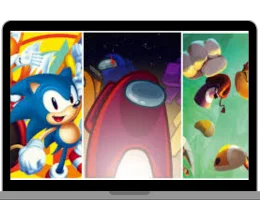
Cross-Platform Compatibility
SDLC Corp build blockchain games that work smoothly on mobile, desktop, and console. Players enjoy a consistent experience and assets, regardless of their device.
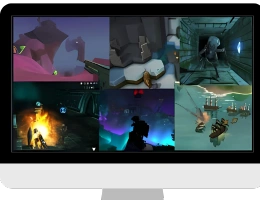
Flexible Metadata for Game Assets
In-game items can change over time. We use innovative metadata systems that let items grow in rarity, use, or strength making the game deeper and assets more useful.
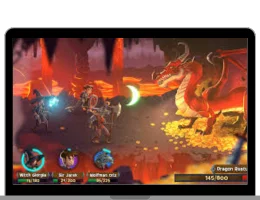
In-Game Marketplaces
We create built-in marketplaces so players can buy, sell, and trade game assets. With smart contracts and real-time tracking, ownership is safe and straightforward.

Secure Wallet Integration
We connect your blockchain game to trusted crypto wallets. Players can easily manage their digital items—store, send, or verify them in the game.
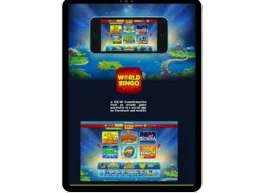
Staking and Rewards
Keep players coming back with rewards. Our staking systems let users earn by locking tokens or NFTs, unlocking rare items, or gaining special access, helping build a strong game economy.
Technologies We Use For Developing Blockchain Games
SDLC Corp is a top blockchain game development company in the USA and globally, utilising the latest technology to build fun and secure games. From creating custom games to setting up marketplaces, we focus on smooth gameplay and actual digital ownership. Let us help you bring your blockchain gaming ideas to life and connect with players in a new way.
Programming Languages
- TypeScript
- JavaScript
- Python & PHP
Databases
- Socket.io
- Node.js
- MongoDB
Backend Development
- Node.js
- PHP & Laravel
- Firebase
Networking & Multiplayer
- WebSockets
- Socket.io
- Node.js & Redis
Cloud & Hosting
- Google Cloud
- AWS
- Azure PlayFab
Game Optimization & Performance
- Web Workers
- IndexedDB
- Service Workers
WebXR Technologies
- Three.js
- A-Frame
- Babylon.js
Graphics & Animation
- WebGL
- WebGPU
- Spine
Build New-Age Games with a Blockchain Game Development Company
Our blockchain game development company offers expert blockchain game developers skilled in creating custom games using advanced blockchain and crypto technologies. We specialize in delivering secure, transparent, and scalable gaming solutions tailored to your unique vision.

Benefits of Outsourcing to a Blockchain Game Development Company
Blockchain game development brings secure asset ownership, transparency, and decentralized economies that boost player engagement and support play-to-earn features.
Producer
At SDLC Corp, our producers lead the creation of innovative blockchain games, focusing on secure ownership, rewarding play-to-earn systems, and immersive player experiences.
Project Manager
Our project managers ensure smooth development, coordinating every step to deliver games with engaging gameplay and fully decentralized economies.
Blockchain Game Designers
Our designers build captivating blockchain game worlds with mechanics that empower players and foster interactive, decentralized experiences.
Artists
Our artists create stunning visuals, from rich environments to unique characters, bringing blockchain games to life.
Blockchain Game Developers
Our developers build secure, scalable games featuring decentralized economies and fresh gameplay ideas to keep players engaged.
QA Engineers
Our QA team rigorously tests every game to guarantee security, smooth decentralized functions, and top-notch gameplay quality.
Our Blockchain Game Development Portfolio
Explore our portfolio of blockchain-based games, where innovation meets technology. We build secure, engaging blockchain games with strategic gameplay, decentralized systems.
The Sandbox
The Sandbox is a virtual world-building platform powered by blockchain technology, allowing users to create, play, and monetize their own voxel-based games and experiences.
- Create, share, and explore limitless virtual worlds.
- Secure ownership of in-game assets via non-fungible tokens (NFTs) integrated with blockchain technology.
- Easily design and animate custom 3D assets using the VoxEdit tool.
- Earn cryptocurrency through play-to-earn mechanics by engaging with and contributing to the platform.
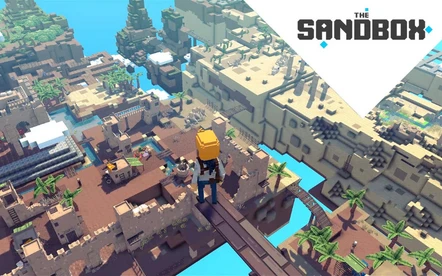
Axie Infinity
Axie Infinity is a blockchain-based game where players collect, breed, and battle fantasy creatures called Axies to earn cryptocurrency rewards, featuring play-to-earn mechanics and a vibrant player-driven economy.
- Play-to-earn model: Earn cryptocurrency by playing.
- Axie breeding: Create unique Axie offspring with strategic genetics.
- Battle system: Engage in strategic PvP battles with Axies.
- Player-driven economy: Trade, buy, and sell Axies and items.
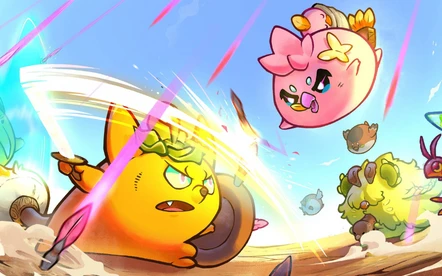
Star Atlas
Star Atlas is an immersive metaverse combining blockchain technology and gaming, offering a vast virtual universe for players to explore, trade, and engage in strategic battles, with a unique feature of decentralized autonomous organizations (DAOs) governing gameplay and economics.
- Seamless blockchain integration for secure asset ownership and trading.
- Real-time strategy battles in a dynamic, player-driven universe.
- Decentralized autonomous organizations (DAOs) governing gameplay and economics.
- Stunning visuals and immersive gameplay experience.
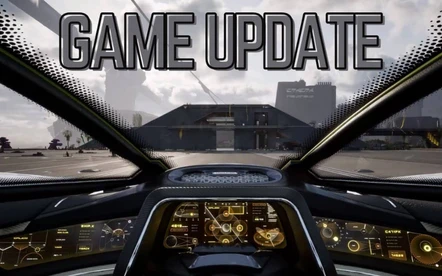
Spider Tanks
Spider Tanks: Advanced military vehicles designed with multi-legged mobility for traversing diverse terrain and equipped with formidable firepower and advanced reconnaissance capabilities.
- Multi-legged mobility for versatile terrain traversal.
- Advanced firepower systems for superior combat capabilities.
- Integrated reconnaissance technology for situational awareness.
- Modular design allowing for easy customization and upgrades.
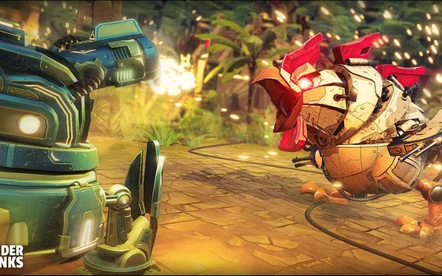
Developing Blockchain Games For Multiple Platforms
We specialize in developing blockchain games for multiple platforms, ensuring seamless gameplay and decentralized economies across web, mobile, and consoles.

Mobile

PC

AR/VR

Console
Our Blockchain Game Development process
At SDLC Corp, we follow a structured and efficient blockchain game development process—covering everything from concept to deployment. Our approach ensures secure digital ownership, NFT integration, and immersive gameplay that engages players.

Requirement Analysis & Planning
We begin with a detailed requirement analysis to understand your vision and goals. Our team maps out the complete development roadmap, ensuring the game features secure blockchain integration, NFT support, and scalable infrastructure.

Research & Game Design
Our blockchain game designers conduct in-depth research to define engaging game mechanics. We focus on play-to-earn models, decentralized economies, and interactive game loops that maximize user retention and revenue potential.

Blockchain Game Development
Before launch, our QA engineers rigorously test every feature. From blockchain transaction validation to gameplay balance and performance, we ensure a flawless device experience.

Quality Assurance & Testing
Before launch, our QA engineers rigorously test every feature. From blockchain transaction validation to gameplay balance and performance, we ensure a flawless device experience.

Deployment & Post-Launch Support
We handle smart contract deployment, marketplace integration, and go-live processes. Our team also offers post-launch support and updates to keep your blockchain game running smoothly and evolving with player needs.
Why Choose Us for Blockchain Game Development?
We bring unmatched experience in custom blockchain solutions and a fresh, forward-thinking approach to every project. Our expert team covers everything from smart contracts to full Web3 integration. With a focus on innovation, security, and user engagement, we build blockchain games that truly stand out in today’s fast-changing digital world.

Experienced and Skilled Developers
Our team comprises industry veterans with 15+ years of experience in blockchain game development. We have successfully launched numerous blockchain games, delivering immersive, secure, and highly profitable gaming experiences.

Global Reach
With clients across the USA, Canada, and beyond, we develop blockchain game solutions tailored for global audiences, ensuring maximum engagement, security, and revenue growth.

Advanced Technology Stack
We leverage cutting-edge technologies to develop high-performance blockchain games. Our tech stack includes Unity, Unreal Engine, NodeJS, Solidity, and more, ensuring secure, decentralized, and immersive gaming experiences.
Blockchain Game Smart Contract Integration Services
At SDLC Corp, we make sure your blockchain game runs smoothly and securely with our smart contract integration services. Our team builds decentralized, automated, and transparent contracts that are custom-designed to fit your game. From managing in-game assets to handling transactions, we help create a trusted and seamless gaming experience.

Types of Our Game Development Services
At SDLC Corp, we offer professional blockchain game development services, delivering immersive experiences and engaging gameplay. From mobile to cross-platform integration, we create custom poker, slots, and table games that combine creativity and technology to captivate players globally.
Design and develop an engaging Ludo game with seamless multiplayer functionality, vibrant graphics, and cross-platform compatibility.
A thrilling multiplayer card game where strategy, skill, and luck converge to win the pot.
Chess is a strategic two-player board game that challenges critical thinking and tactical planning.
A captivating online casino experience where players spin reels to match symbols and win rewards
Rummy is a classic card game of skill and strategy where players aim to form sets or sequences to win.
Baccarat is a classic casino card game of chance where players bet on the outcome of the banker, player, or tie for a thrilling gaming experience.
Case Studies on Successful Game Projects
Discover how SDLC Corp has driven success in the gaming industry with our detailed case studies. Explore our innovative strategies, cutting-edge technologies, and collaborative approaches that have led to the creation of engaging, high-performance games. Learn how we transform ideas into successful gaming projects, delivering outstanding results for our clients.
Blogs On Game Blockchain Game Development
Explore SDLC Corp’s insightful blogs on blockchain game development. Discover expert analyses, industry trends, and success strategies for creating engaging blockchain games. Stay updated with our latest articles to enhance your knowledge in the blockchain gaming industry.
Testimonials
Top-tier game services that enhance your gaming experience! From seamless account management to personalized support, our team ensures you get the most out of your playtime. Trusted by gamers worldwide for reliability, speed, and excellence. Level up with us!

Prabhakar Posam
CEO, Patang
On time delivery
Reporting
Communication
Code Quality
Availability
“I’ve never experienced such seamless gaming services before! The support team is always ready to help, and their account management features are top-notch. My gaming experience has significantly improved. Highly recommended!”
On time delivery
Reporting
Communication
Code Quality
Availability
“The personalized support I received was incredible. They handled my issues quickly and professionally, making my gaming sessions smoother than ever. Truly the best in the business!”
Contact Us
Share a few details about your project, and we’ll get back to you soon.
Let's Talk About Your Project
- Free Consultation
- 24/7 Experts Support
- On-Time Delivery
- sales@sdlccorp.com
- +1(510-630-6507)















